Music interview: Will Gregory on Hull City of Culture's Basil Kirchin weekend
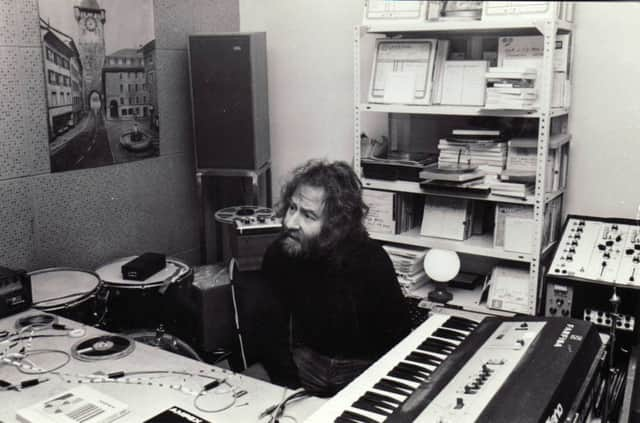

Basil Kirchin may not be among Yorkshire and the Humber’s most celebrated musicians but his work over a 60-year period can certainly be described as among the most visionary to have ever emerged from this region.
A prodigious drummer in his father Ivor’s jazz band, he went on work with future Beatles producer Sir George Martin, create film soundtracks – most notably the 70s British horror film The Abominable Dr Phibes – and experiment with industrial, orchestral, psychedelic, ambient and found sounds.
Advertisement
Hide AdAdvertisement
Hide AdHe died in 2005 aged 77 but next weekend Hull City of Culture 2017 is due to celebrate his work and influence with a weekend of concerts under the banner Mind on the Run: The Basil Kirchin Story.
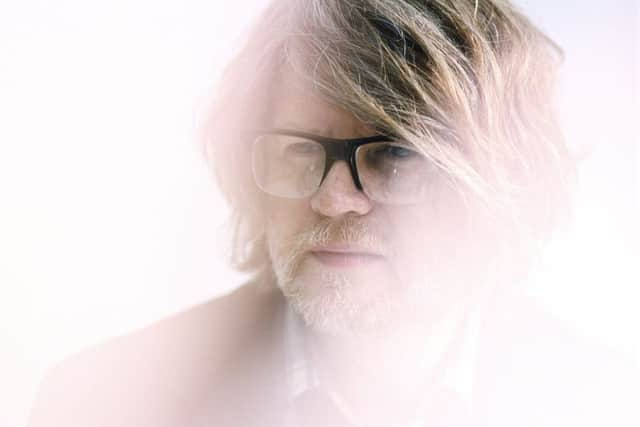

Among the musicians taking part are Sean O’Hagan of The High Llamas, saxophonist Evan Parker, improvisational duo Spring Heel Jack and Jerry Dammers, founder of The Specials. The closing concert at Hull City Hall, Mutations of Musical Modernism, is being curated by Will Gregory of the band Goldfrapp, with contributions from Saint Etienne’s Bob Stanley and Pete Wiggs, Bjork collaborator Matthew Herbert, Sonic Youth’s Jim O’Rouke and pianist Matthew Bourne as well as the BBC Concert Orchestra. It’s being recorded for future broadcast on BBC Radio 3’s Here and Now.
Gregory may be a relative newcomer to Kirchin’s work – “It’s slightly embarrassing to admit that I didn’t know about it until I spoke to the people who are organising this concert, Serious,” he confesses – but having immersed himself in his recordings he says: “I’ve come to really love it.”
He adds: “It’s funny because you speak to various people and half of them say ‘I’ve never heard of him’ and half of them go ‘I know all about him’. It’s like ‘How have I missed out on this all this time?’ but it seems to be quite common that people haven’t heard of him.”
Advertisement
Hide AdAdvertisement
Hide AdFifty-seven-year-old Gregory, who studied music at the University of York, recognises in Kirchin a fellow sonic explorer. “He’s definitely part of a movement that came up through the 50s and 60s to do with certainly his experimental side because he was working with tape and he was working with found sound. He was excited with the nature of once you had a sound on tape you could manipulate it and do things with it and incorporate it into live performance – that’s something I’ve always been interested in, that idea, and been inspired by pioneers from that period who did that.
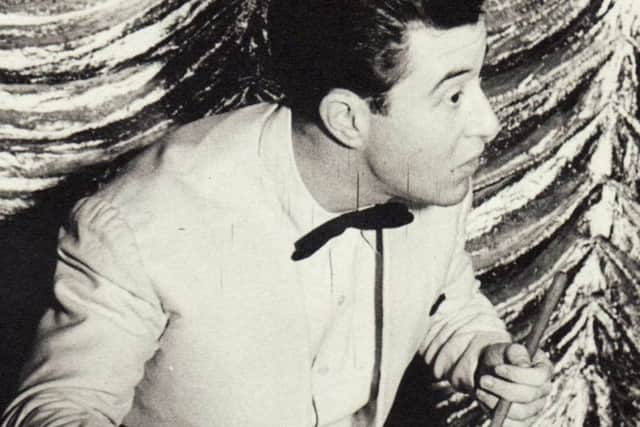

“But then he’s somebody who’d got two strands to his output which is his film music and the stuff he did for library music – Abstractions of the Industrial North and various other pieces. We haven’t found scores for them but we’ve found people who’ve helped transcribe them so we’re bringing them back to life. And of course he did the film music to Dr Phibes so we’re able to bring a bit of that to the concert too.”
Kirchin’s took his first musical steps at 13 when he joined his father’s jazz band, then one of wartime Britain’s top swing groups. He went on to play in various ensembles before rejoining his father in the 1950s to cut a number of discs for Parlophone with the producer George Martin.
After his father was seriously injured in a car crash, Kirchin took over leadership of the band but soon became “fed up of playing other people’s music”. Instead he travelled America, India and Australia. When he returned to Britain he made living writing theme and incidental music for films and television.
Advertisement
Hide AdAdvertisement
Hide AdGregory notes: “He obviously knew all the guys from that scene because in the recordings from that period you can hear all those great British jazz players there. People who really know the material can probably name them by listening to it. He had that other side to him and it’s very lush and beautiful and very rich and also all part of that 60s heyday of British jazz. At that point jazz was almost like the pop music of the day, all the TV themes from the period seem to be jazz scores. There’s a whole legacy of music from that period from all those talented arrangers that has obviously influenced me and my generation hugely.”
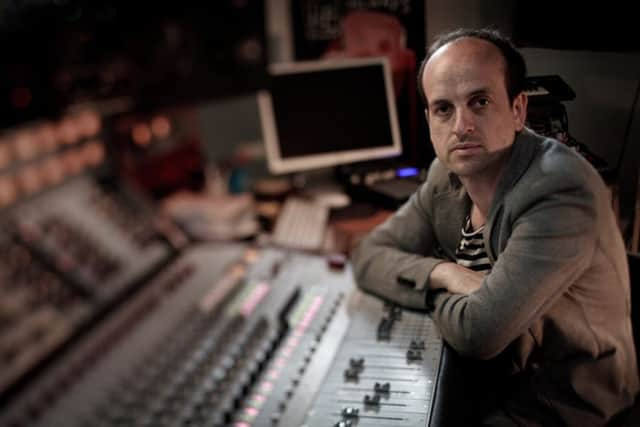

By the early 1970s Kirchin was seeking a new sound, and found it with the aid of a Nagra tape recorder that he was able to buy with an Arts Council grant. He began to make field recordings of animals and birds and noises from everyday life which he would manipulate and mix with improvised jazz. Two albums, both called Worlds Within Worlds, showcase Kirchin at his most adventurous and feature avant garde players such as Evan Parker and the late guitarist Derek Bailey.
The tape experiments test Kirchin’s principle that “there is no such thing as a long note”. In stretching out sounds of lions, gorillas and birds, he discovered a new kind of music.
“I think that was an important part of his philosophy,” reflects Gregory. “You get the sense that he loved just analysing the sound and breaking it down, whether it was birdsong or some animal sounds. He recorded insects walking. He was into the idea of using the microphone as a kind of audio microscope to enlarge sounds and stretch them out. That was alongside a lot of people who discovered a tape recorder and what a liberating thing that is but he did it in his own inimitable way and you get this unique fusion of people like Evan Parker improvising along to sounds of birds. There’s nobody else who was really doing that.”
Advertisement
Hide AdAdvertisement
Hide AdThe second volume of Worlds Within Worlds was lauded by Brian Eno but both sold poorly and Kirchin complained they’d been remixed by the EMI and Island Records against his wishes. Disillusioned, he retreated to the Hull area where he continued to compose in obscurity for the next 20 years. At the turn of the Millennium Trunk Records began reissuing his lost recordings, to some acclaim, but a decade after Kirchin’s they are out of print and CDs can fetch more than £100 on the internet.
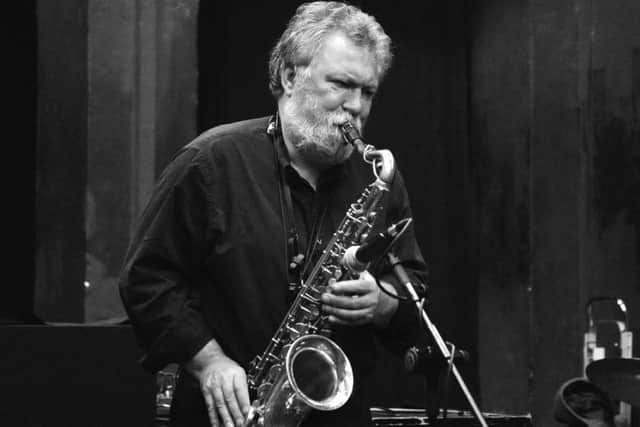

Gregory hopes the Mind on the Run weekend will rekindle interest in Kirchin. “I’m hoping that Hull is proud of him and is keen to blow his trumpet – I think for good reason,” he says. “I’m very glad that I’ve been able to research him and discover him and find out what he was up to.
“I think he’s a uniquely British eccentric combination of outsider artist and very gifted musician. I can see why he’s inspired various niche English bands like Saint Etienne and the High Llamas or from anywhere to be interested in him and hopefully the word will spread.”
The concert at Hull City Hall on February 19 will feature some of Kirchin’s own jazz compositions alongside new work inspired by his music.
Advertisement
Hide AdAdvertisement
Hide AdExplains Gregory: “Because of the jazz stuff that we’re trying to bring back to life they’ve allowed us to bring in some specialist jazz musicians. Evan Parker is going to be there, who knew him and played with him, as is Alan Barnes, who also recorded with him. I’m hoping they’ll be able to talk at the concert about their experience of working with him.”
The BBC Concert Orchestra will also have two drummers and a guest singer for a re-creation of Kirchin’s piece Quantum. “Most of these pieces will never have been performed since the day they were recorded – it’s almost going to be like a premiere,” says Gregory.
Bob Stanley, who was the last person to interview Kirchin for a feature in Mojo magazine, has also co-created an audio-visual work inspired by Kirchin’s 1970s residence in Holderness with Saint Etienne bandmate Pete Wiggs.


Gregory’s piece picks up on Kirchin’s experiments with birdsong and the human voice. “This wonderful woman called Brigitte Beraha is having to interpret the sounds of blackbirds and things like that, she’s going to manipulate her voice to mimic birdcalls and various other instrumentalists are doing the same and we’re trying to stake our own territory among the blackbirds. Hopefully that’s very much in the spirit of Kirchin and what he enjoyed.”
It starts at 3pm. For more information on the Basil Kirchin weekend visit www.hull2017.co.uk/whatson/events/mind-on-the-run/